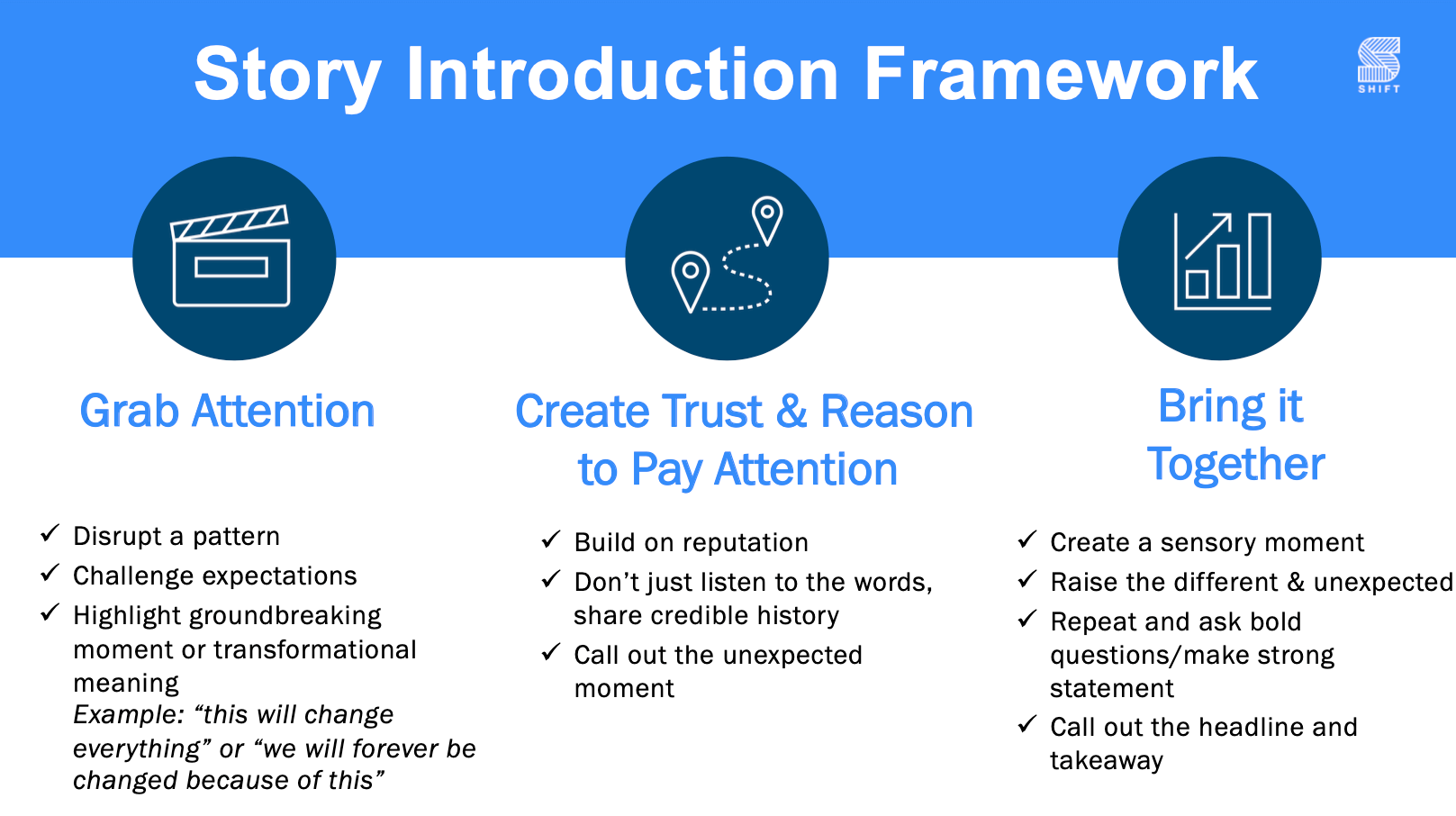
Up until recently, people considered storytelling as something that only authors and movie creators do.
The importance of storytelling in the business world is now coming into the spotlight as more leaders are looking to build these skills within their organizations.
Here are the top 3 reasons why every leader should have "build storytelling skills" at the top of their list:
- More effective communication: stories elicit emotion which makes messages more memorable
- Inspired action: when people are connected emotionally, they're more inclined to take action and put in discretionary effort
- Deeper and more trusting client relationships: beyond the actual product or services, clients buy (and keep buying) when they connect with your story
Supercharge Your Storytelling Technique
The emotional connection created through stories has the ability to empower your team and transform your business.
Tune into this 15-minute on-demand webinar to pick up tips and tricks for telling stories that help you meet your goals.
Don't have time to watch right now? Keep reading for a taste of some key takeaways from the storytelling session.
Storytelling is an Underrated Skill
From pitching an idea to building relationships, storytelling plays a role whether you realize it or not.
By sharing a compelling story, people will retain what you say and feel inspired to take action.

Business ROI of Stories
Research conducted by Harvard professors John P. Kotter and James L. Heskett found how stories can directly affect an organization's bottom line.
They saw how companies that successfully communicated their purpose and value could achieve profit performance that was 750 times greater than those that didn't.
This example showcases how sharing stories at work – like about company vision – can help employees feel more connected and engaged. With more engaged employees, companies find higher levels of performance, which results in significant business growth.
Frame Your Story
Stories will resonate and have a lasting effect when they:
- Elicit memories
- Evoke imagination
- Trigger emotion
With that in mind, explore the components of this story introduction framework:

Practice Storytelling With Your Team
Create a safe space where you and your team can practice applying this framework.
The stories don't have to be about momentous and life-changing events. It's about hearing from one another about their unique experiences – no matter how big or small.
- Reflect and identify a story of success or learning
- Shape that story using the story introduction framework
- Set up breakout groups to give people the chance to share stories and capture takeaways
Check out our 15-minute video to hear more examples and advice for sharing stories that connect teammates, ignite change, and drive business success.








